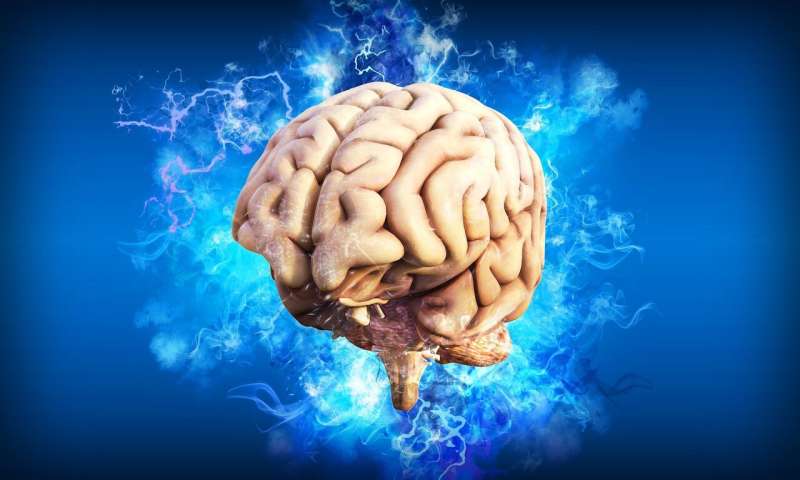Scientists identify how the brain links memories

Our brains rarely record single memories—instead, they store memories into groups so that the recollection of one significant memory triggers the recall of others connected by time. As we age, however, our brains gradually lose this ability to link related memories.
Now UCLA researchers have discovered a key molecular mechanism behind memory linking. They've also identified a way to restore this brain function in middle-aged mice—and an FDA-approved drug that achieves the same thing.
Published in Nature, the findings suggest a new method for strengthening human memory in middle age and a possible early intervention for dementia.
"Our memories are a huge part of who we are," explained Alcino Silva, a distinguished professor of neurobiology and psychiatry at the David Geffen School of Medicine at UCLA. "The ability to link related experiences teaches how to stay safe and operate successfully in the world."
A bit of Biology 101: cells are studded with receptors. To enter a cell, a molecule must latch onto its matching receptor, which operates like a doorknob to provide access inside.
The UCLA team focused on a gene called CCR5 that encodes the CCR5 receptor—the same one that HIV hitches a ride on to infect the brain cell and cause memory loss in AIDS patients.
Silva's lab demonstrated in earlier research published in eLife that CCR5 expression reduced memory recall.
In the current study, Silva and his colleagues discovered a central mechanism underlying mice's ability to link their memories of two different cages. A tiny microscope opened a window into the animals' brains, enabling the scientists to observe neurons firing and creating new memories.
Boosting CCR5 gene expression in the brains of middle-aged mice interfered with memory linking. The animals forgot the connection between the two cages.
When the scientists deleted the CCR5 gene in the animals, the mice were able to link memories that normal mice could not.
Silva had previously studied the drug, maraviroc, which the U.S. Food and Drug Administration approved in 2007 for the treatment of HIV infection. His lab discovered that maraviroc also suppressed CCR5 in the brains of mice.
"When we gave maraviroc to older mice, the drug duplicated the effect of genetically deleting CCR5 from their DNA," said Silva, a member of the UCLA Brain Research Institute. "The older animals were able to link memories again."
The finding suggests that maraviroc could be used off-label to help restore middle-aged memory loss, as well as reverse the cognitive deficits caused by HIV infection.
"Our next step will be to organize a clinical trial to test maraviroc's influence on early memory loss with the goal of early intervention," said Silva. "Once we fully understand how memory declines, we possess the potential to slow down the process."
Which begs the question: why does the brain need a gene that interferes with its ability to link memories?
"Life would be impossible if we remembered everything," said Silva. "We suspect that CCR5 enables the brain to connect meaningful experiences by filtering out less significant details."
More information: Alcino Silva et al, CCR5 closes the temporal window for memory linking, Nature (2022). DOI: 10.1038/s41586-022-04783-1. www.nature.com/articles/s41586-022-04783-1
Miou Zhou et al, CCR5 is a suppressor for cortical plasticity and hippocampal learning and memory, eLife (2016). DOI: 10.7554/elife.20985



















